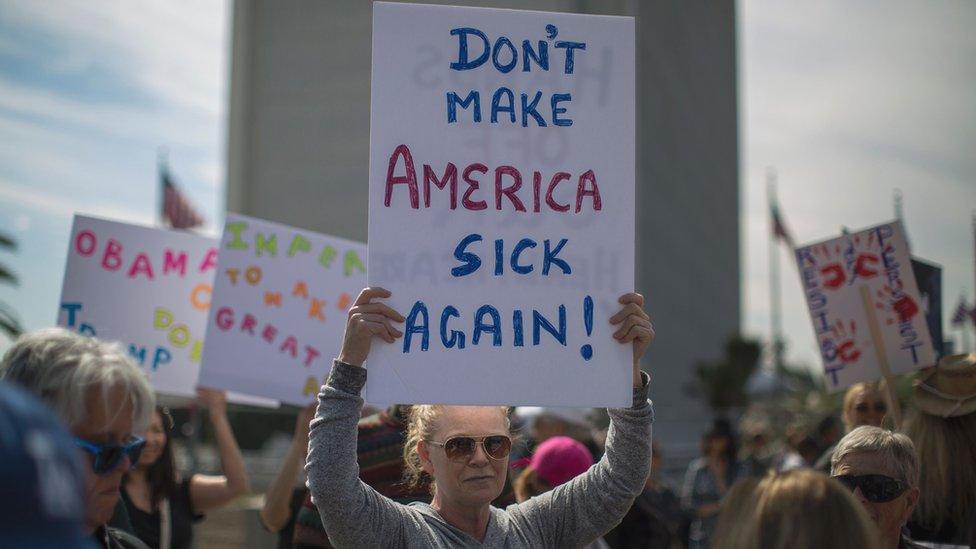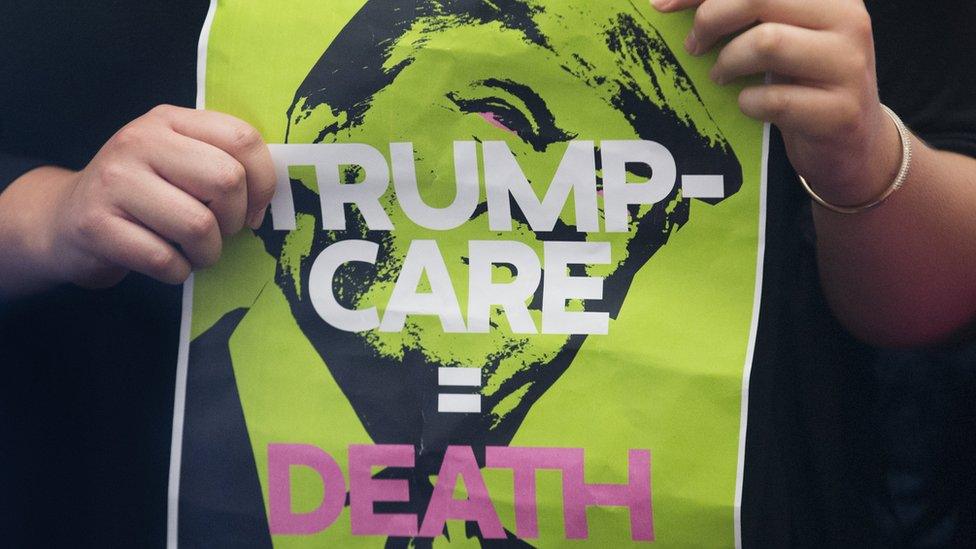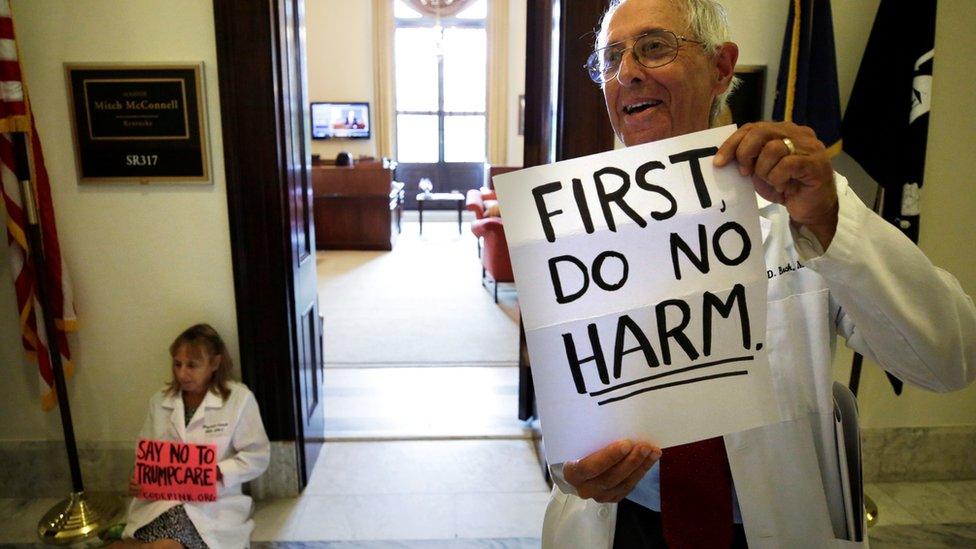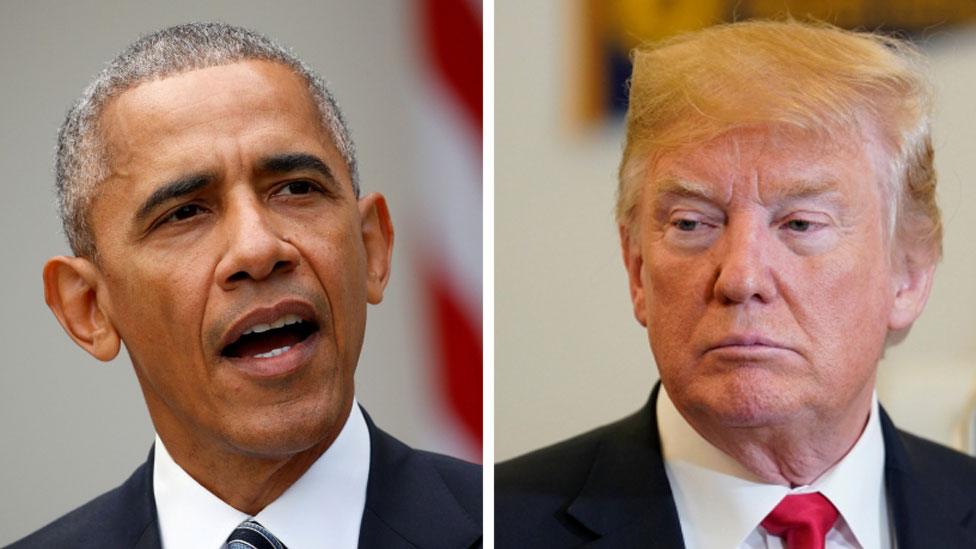Trump's Obamacare repeal: Back to drawing board for Republicans
- Published

Is this the end of the repeal-and-replace war?
In the end the death blow to the latest iteration of Obamacare repeal came from the right flank.
Senate Majority Leader Mitch McConnell was always going to have to walk a fine line in his effort to keep both moderates and hardcore conservatives in the party on board with his healthcare reform proposal.
After his first draft failed to garner sufficient support, he came out with a new version that moved farther to the right in key areas while throwing money to keep the moderates satiated.
That strategy worked in the House, where Freedom Caucus arch-conservatives and just enough moderates came around to rescue the legislation from death's doorstep.
In the Senate, the entire rickety structure came tumbling down. Mike Lee of Utah and Jerry Moran balked, citing insufficient tax and regulation rollbacks.
Expect a stampede for the exits in the coming days, as everyone abandons what was always an unpopular bill.
On Monday night the president himself led the way, calling for repeal without so much as a plan for what to do next.
Then again, the Republican Party never really had a replacement plan, and its attempts to craft one on the fly - something that would perform better than Obamacare while costing less money - were like one of those hapless early airplane designs that flapped its wings or spun its wheels but never left the ground.
The Senate may very well try to vote on straight-up repeal, as the president has suggested - one with a two-year fuse - but it stands little chance of winning majority support. If and when that fails, it's back to the drawing board for Republicans.
The urgent need to do something, anything, to fulfil their years of healthcare promises is still there.
The White House is pledging to keep up the pressure.
There could even be a move, as some Republicans are now urging, to reach out to Democrats for help crafting a bipartisan solution to fix some of the current system's more glaring shortcomings.
This isn't the end of congressional efforts to pass healthcare legislation. But it's likely the end of the repeal-and-replace war as it's been waged for the past six months.
The final casualty list won't be tabulated at least until the midterm elections in November 2018, but it's not too early to wonder exactly how high the political death count for Republicans might run.

The Senate's Obamacare repeal bill is woefully unpopular and has led to numerous protests
All the members of the House of Representatives who gathered on the grounds of the White House to celebrate voting for a bill that was both politically toxic and will now never see the light of day have to be wondering if they stuck their neck out only to see the glint of the guillotine.
Others may be left wondering if the grassroots Tea Party faithful who rallied to their sides in opposition to Barack Obama and the Democrats in years past may find better things to do than vote when the next election day rolls around.
Political epitaphs aren't written in a day, and Mr Trump and the Republicans still have the opportunity to regroup and recover. They could find solace in a tax reform package or some new, as yet unrevealed infrastructure spending plan.
This is a serious setback, however. And time is a commodity in increasingly limited supply.
- Published18 July 2017

- Published20 September 2017

- Published29 March 2019
